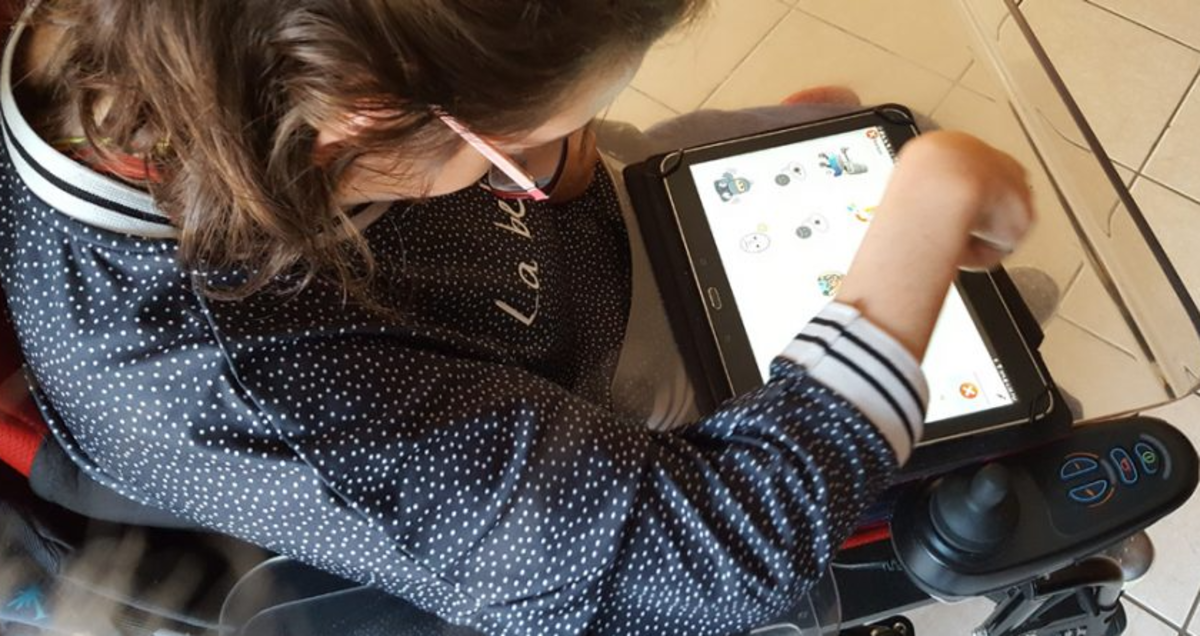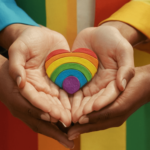Degenerative disease, psychiatric illness, malformation, or life accident: many people are using the internet to speak about their daily lives. It is an ideal platform to express themselves and celebrate differences, but also to deconstruct stereotypes. The Internet Show has focused on these inspiring individuals with incredible stories to shed light on the importance of social media in their battles.
Sara Rezki has faced cancer four times. To talk about it, she regularly shares her story, her fight, and her passion for boxing online. Diagnosed with a terminal cancer at the age of 38, this time metastasized, she undergoes a series of heavy operations. As her body and mind are exhausted, a loved one makes her a proposition: “I have a friend who was a boxing champion, who saw me in this state and proposed to do something, to train me. What happened is that I lost him. The day I found out, I went to sign up for the boxing gym. I did it for him at first, because I was so unhappy, and then I got caught up in it,” she tells the Internet Show. Boxing acts as a true shock therapy for Sara, allowing her to reinvent herself and externalize her anger: “I was able to regain confidence, lose weight.
It did me a world of good, that’s why I say boxing saved me.” She then decides to create the Brussels non-profit organization FightXLife, which offers boxing classes adapted to sick people, but not only. Today, Sara is 49 years old and works full-time for her association. To attract new members, she promotes it on social media: “I have a tool here, and I think there is a need. If I had this need, I think others have it too,” explains the coach.
Like Sara, many people with disabilities or serious illnesses share their experiences on the internet. It is a platform for mutual support and combating loneliness, but also simply a need to express oneself. Yang-Ting has bipolar disorder. On her TikTok account with 250,000 followers, she breaks down stereotypes and talks about her daily life: “It has done me a lot of good because it allowed me to overcome the stigma associated with this illness, which is quite challenging. I have also learned more about it over time, as I see my situation evolve and gain perspective,” explains the young woman from Liège on the Internet Show. Jimmy, on the other hand, has a disability. Paralyzed from the waist down for 20 years following a serious car accident, he lost the use of his legs but never gave up his lifelong passion: breakdancing.
Also a content creator and comedian, he shares his sketches and wheelchair dance sessions on social media. “I went from being very active to almost non-active. Since I didn’t have much else to do, I started spending time on my blog to show that living in a wheelchair doesn’t prevent you from doing all sorts of things, even break dancing,” he explains in the Internet Show. Jimmy’s videos are successful and motivate him to push his limits: “I really got into the sharing game on the internet, I needed to show that I could do a lot of things, like ‘impossible is nothing’.” A joker as well, a new life opens up to him when he teams up with a friend for a series of humorous videos about disability, “Les gars de Jette”. By sharing his passion, Jimmy was able to rebuild himself.
Breaking down prejudices
Talking about one’s illness or disability is also about breaking down prejudices and educating the general public about the realities of the daily lives of those affected. “A lot of people associate bipolar disorder with a trend, and I think that trivializes the disease a lot,” Yang-Ting exclaims on the set of the Internet Show. On social media, the young woman breaks taboos about bipolarity every day. According to her, this disorder is still misunderstood: “In my city, Liège, many people called me crazy, insane. I was even bullied in secondary school. I thought I would share the reality of everyday life to also help men and women who suffer from it. And then, people often confuse moody and bipolar, so I wanted to publicly explain what bipolarity really is,” she says. The content creator also reminds undiagnosed individuals who identify with these disorders not to self-diagnose, but to consult a psychiatrist.
By documenting their daily lives, some people with illness or disabilities aim to demystify their condition. Sarah Talbi was born without arms. Impressive in her agility, she learned from birth to do everything with her feet. On her YouTube channel with 300,000 subscribers, she shares her life as a mother and living with her disability. For her, living without arms is not a fight, but rather a normality: “Social media came to me more than the other way around. Basically, I’m just like anyone else, except I was born without arms. It just so happens that I had social media like everyone else, and by creating content, I received a lot of questions,” she explains in the Internet Show. Thus, the creator set out to answer the questions of internet users with pedagogy. Cooking, drawing, cleaning… she proves that even without arms, it is possible to live normally.
According to her, this approach allows the public to identify with her condition and to take away the drama: “If I tell people that I cook with my feet, they can’t imagine it. But if I make a video, immediately, it speaks for itself. I think that the image is very important and that social media offers us that, precisely.” Through education and pedagogy, the young woman hopes to change our perception of disability: “We know that as we age, loss of autonomy will spare no one, whether it’s our parents, grandparents, or ourselves. That’s why it’s very important to include it in society,” she concludes.







